Get qualified medical interpreters online in under 10 seconds with no prior notice.








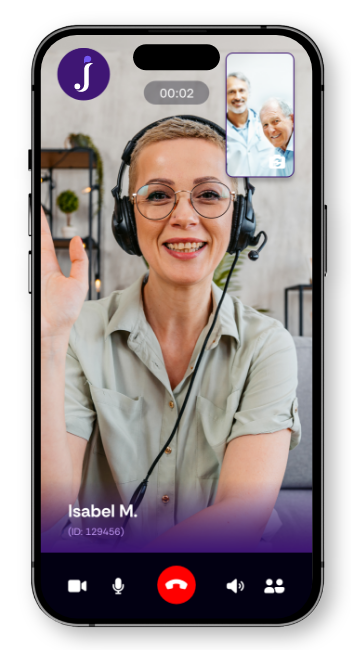
Clear communication is vital for equitable, patient-centered care. In the United States, one in five people do not speak English at home and even more struggle to communicate in critical healthcare moments. Jeenie’s world-class, medically-qualified interpreters bridge the gap between patients and caregivers – guaranteeing improved patient outcomes.




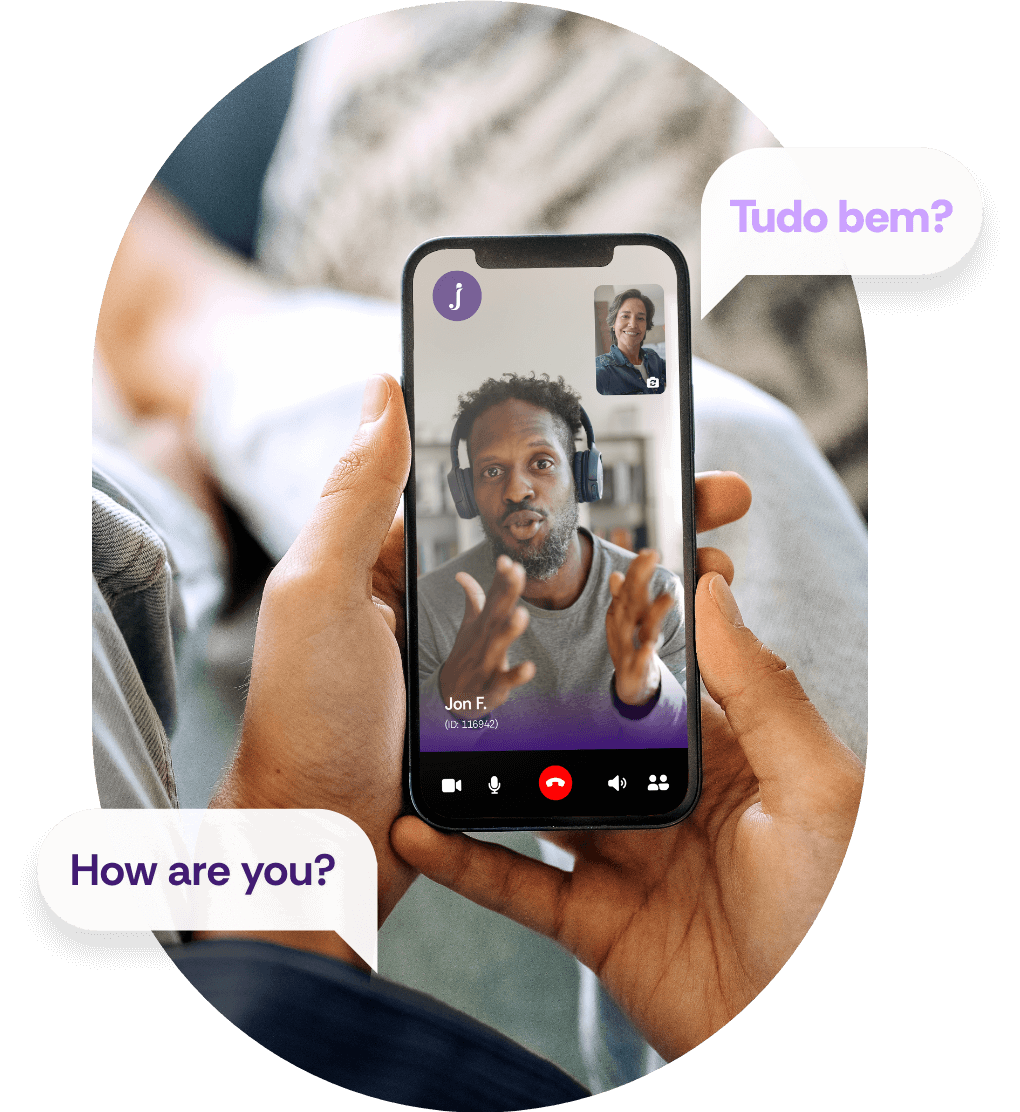
Now, patients can scan a code from their healthcare provider and access Jeenie's hospital interpreter services directly on their own personal mobile devices. No more waiting for Providers to get the interpreter, and no more anxiety about whether or not language services will be provided.
Patients are empowered to connect to language access help whenever they need it throughout their healthcare journey.
Effortlessly bridge language gaps on your care team with interpreters fluent in over 300+ languages, including rare and indigenous ones.
All medical interpreters on Jeenie have an average of four years of medical interpreting experience, are HIPAA certified, and are required to maintain a 4-star client rating to work on the Jeenie platform.

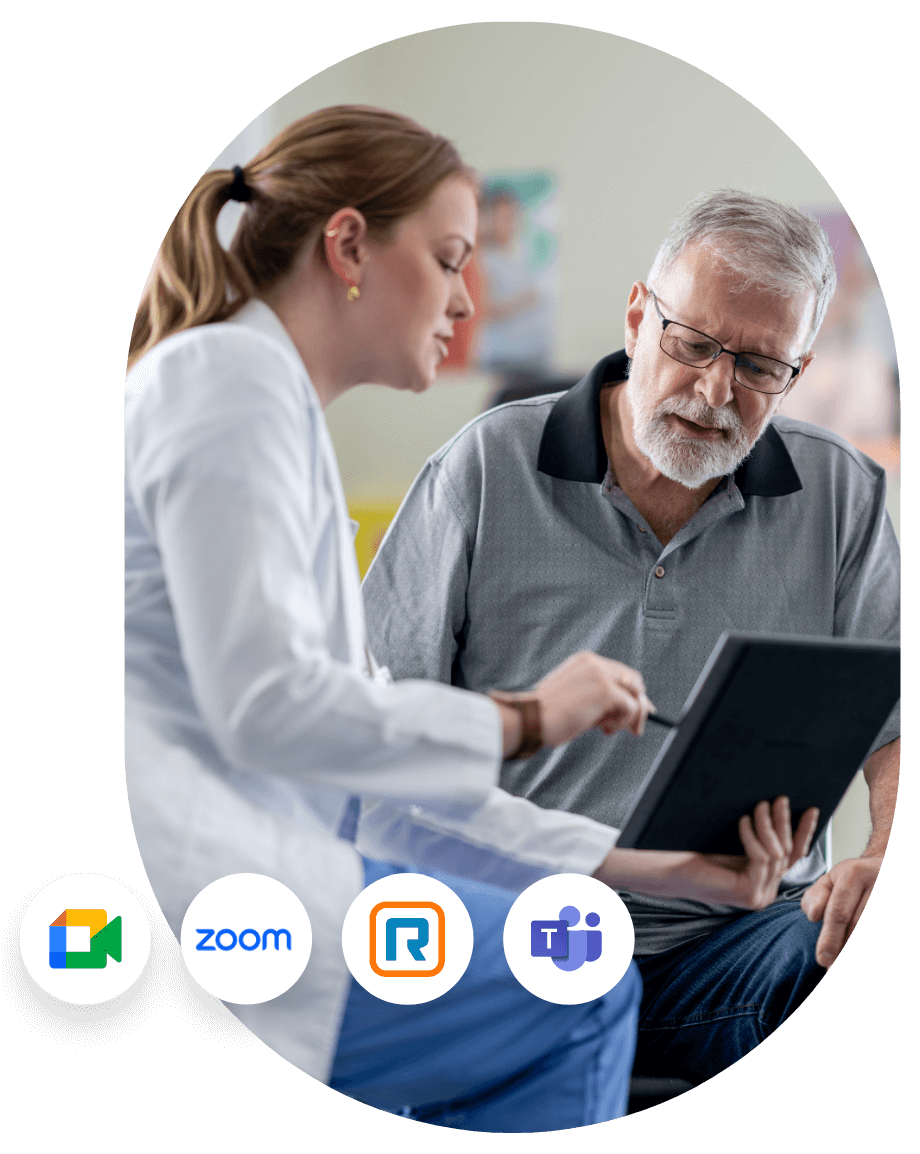
Jeenie eliminates device barriers, offering effortless connectivity from your mobile device, tablet, desktop, or landline.
We fit into your workflow with integrations built for the platforms you use everyday — whether it’s telehealth, video conferencing, or EMR systems.
With Jeenie, nonverbal cues are never lost in translation. Our high-quality video remote interpreting (VRI) service is available 24/7 to maximize patient-caregiver communication, verbal and non-verbal, and deliver continuous support for the Deaf and Hard of Hearing communities.

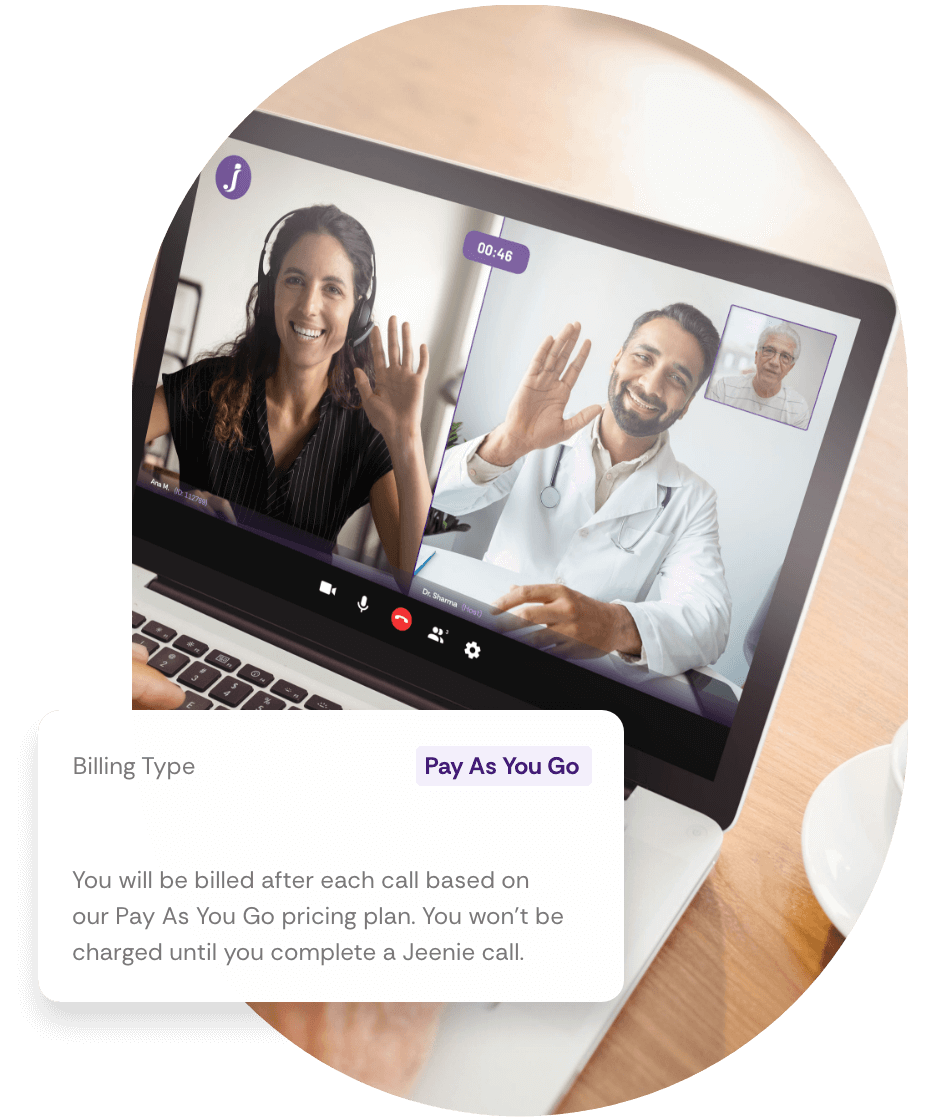
Remote interpreting promotes better efficiency and helps providers realize significant cost savings without compromising quality of interpreting.
Jeenie provides price-competitive video and audio interpreting pricing, along with multiple plan options to fit our clients’ needs and budgets.

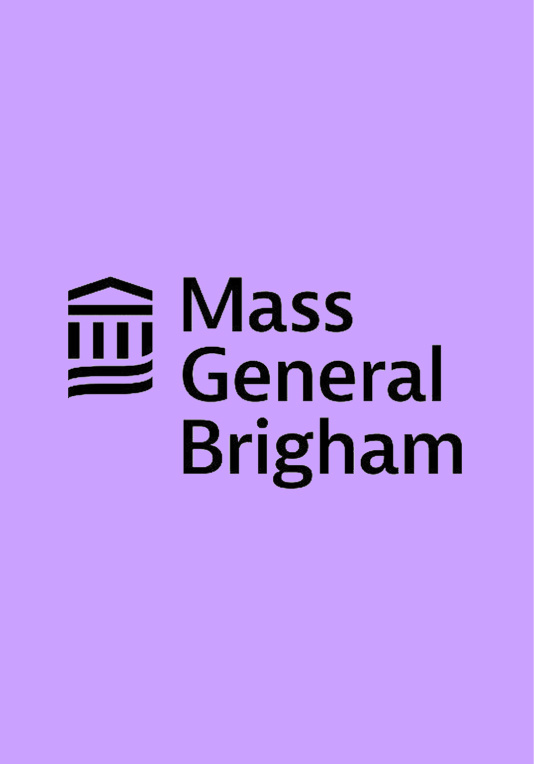
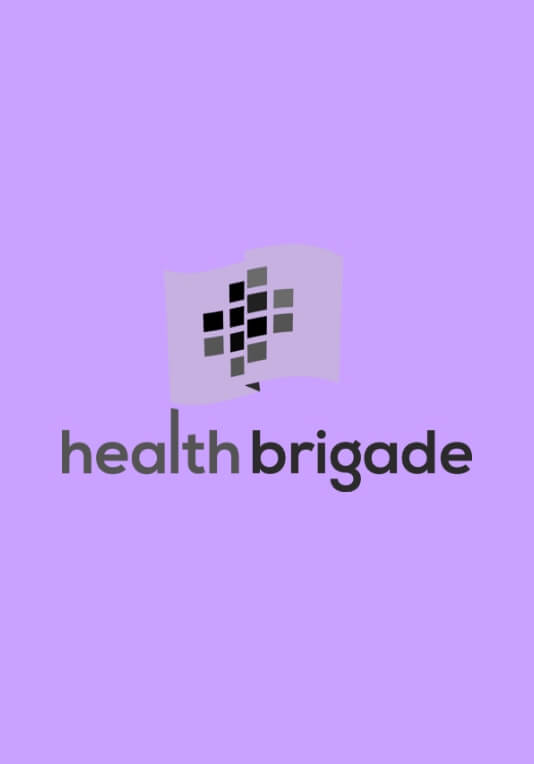
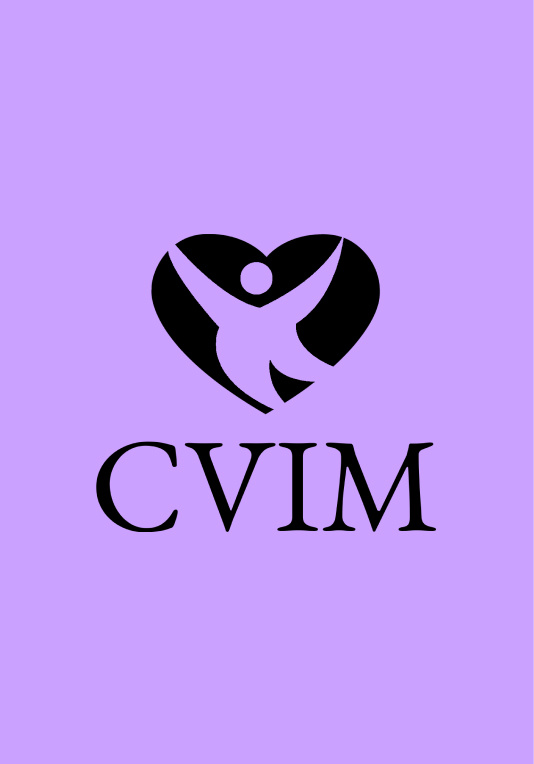
Limited English Proficient (LEP) patients have a better understanding of diagnosis, and greater adherence to treatment protocol leads to better health outcomes.
Better outcomes promote patient trust in their providers, loyalty and satisfaction, driving
higher HCAHPS scores and reimbursements
for Value-Based Care.
Accurate communication results in better diagnosis and treatment, lowering risk of malpractice.
Better diagnoses lead to better treatment protocol and adherence, as well as lower recurrence and readmission.
Jeenie enables healthcare professionals to communicate with patients in any language instantly. In a hospital or clinic setting, staff can use Jeenie to call up an interpreter on a tablet, phone, or workstation whenever a patient has limited English proficiency or uses sign language.
This means doctors and nurses can get on-demand medical interpreters 24/7 at the point of care, rather than waiting for an on-site interpreter or struggling through language barriers.
Jeenie offers both video and phone interpreting, which is ideal for healthcare: video allows the interpreter to see visual cues and use ASL for Deaf patients, while phone can be used for quick needs. All of Jeenie’s healthcare interpreters are familiar with medical environments, so we can handle everything from intake questions and informed consent discussions to complex surgical explanations or therapy sessions.
By integrating Jeenie, hospitals can improve patient outcomes and satisfaction – ensuring that language differences do not impede understanding or the quality of care. In fact, many top hospitals and health systems trust Jeenie for language access because we deliver experienced, medically qualified, HIPAA-compliant interpreters on demand, which is essential for patient safety and effective treatment.
Yes. Jeenie places a strong emphasis on interpreter qualifications in healthcare. All healthcare interpreters on Jeenie's Plus, Premium and Enterprise plans must have relevant experience or certification in medical interpreting.
Jeenie’s medical interpreters, on average, have 4-6 years of healthcare experience (with a minimum requirement of 2 years). They are also tested for knowledge of medical terminology and scenarios. Importantly, every Jeenie healthcare interpreter is HIPAA certified (Note: Connect plan interpreters are not guaranteed to be HIPAA-certified)
HIPPA-certified interpreters are trained to understand and uphold patient privacy and confidentiality as required by the Health Insurance Portability and Accountability Act.
Jeenie ensures compliance with other standards too: for instance, interpreters are qualified in line with Section 1557 of the ACA (which mandates meaningful access to language services) and Joint Commission regulations regarding language access in hospitals.
Many Jeenie interpreters hold certifications from bodies like CCHI or NBCMI (national medical interpreter certs), meaning they’ve passed rigorous exams in healthcare interpreting.
Additionally, Jeenie provides an in-house medical interpreter certification program as an added layer. All of this is to say: when you use Jeenie in a healthcare setting, the person interpreting is not just bilingual – they are a trained professional in medical communication, aware of medical vocabulary, ethics, and patient privacy rules.
In almost no time at all – typically in under 8 seconds, an interpreter will be on the line.
Speed is one of Jeenie’s biggest advantages, especially in healthcare, where timing can be critical. For example, if an ER patient arrives who speaks a rare language, the staff can grab a phone or tablet and have a video interpreter for that language, helping with triage within moments.
This immediate access can be life-saving when every second counts (think of a situation like chest pain or stroke symptoms where understanding the patient’s history quickly is crucial). Even in non-emergencies, quick access improves workflow – nurses and doctors don’t have to pause and wait for help or reschedule conversations.
Jeenie’s average connection time is just a few seconds, which is faster than many internal hospital interpreter call centers and certainly quicker than scheduling an on-site interpreter (which could take hours or days). Compared to some traditional phone services where you might be on hold, Jeenie is essentially instantaneous.
The bottom line: healthcare providers can rely on Jeenie to provide an interpreter when needed, minimizing any delays in communication.
Absolutely. Jeenie was designed to be flexible and works great in telehealth contexts.
The platform can integrate into or alongside your telehealth systems. For instance, if a doctor is doing a telemedicine video call with a patient who needs an interpreter, the doctor can invite an interpreter directly into the telehealth session. Jeenie’s interpreters are accustomed to remote consultations – they often interpret over video for patient visits, mental health therapy sessions, follow-up calls, etc.
Since Jeenie supports any device, a provider could even send a link to a patient to connect to an interpreter on the patient’s side if needed.
The service is HIPAA-compliant, so privacy in telehealth is maintained.
In essence, Jeenie extends the reach of your telehealth by ensuring language is not a barrier: even if doctor and patient are not in the same room (and don’t share a common language), a qualified medical interpreter can join virtually and facilitate just as effectively as in person. Healthcare organizations have found Jeenie to be a seamless add-on for telemedicine, improving accessibility for LEP patients.
Jeenie offers a combination of qualities that align perfectly with healthcare needs: speed, reliability, breadth of languages, and high interpreter quality.
Compared to many competitors, Jeenie’s on-demand speed is a game-changer – interpreters in seconds, not minutes. This immediacy is especially crucial in medical emergencies or fast-paced settings where waiting on language support isn’t an option.
Another factor is language breadth: Jeenie covers not only all the common patient languages but also many rare languages that hospitals occasionally need (for example, a hospital that sees refugee patients might need an interpreter for a language like Karen or Nepali – Jeenie can provide that on the fly, whereas others might struggle). Our Direct-To-Interpreter model also means better quality control, cost savings, and accountability.
Jeenie maintains “immediate oversight and feedback” with its interpreters, and clients can rate each call, ensuring consistently high performance. This is in contrast to some traditional vendors, where feedback loops are longer.
Additionally, Jeenie is cost-effective – hospitals have reported savings by using on-demand minutes with Jeenie versus paying for full-time staff or expensive minimum blocks with other agencies.
Finally, user experience: Jeenie’s interface is intuitive (designed with caregivers in mind), which means even a busy nurse can quickly tap through to get an interpreter without fuss. Many leading healthcare providers (including renowned institutions) use Jeenie and praise its interpreters for professionalism and handling sensitive situations excellently.
All these reasons contribute to Jeenie often being seen as a superior solution in healthcare when compared to legacy language line services or less specialized platforms.
Connect with our experienced team to explore medical interpreting solutions and catch a quick demo of our platform.